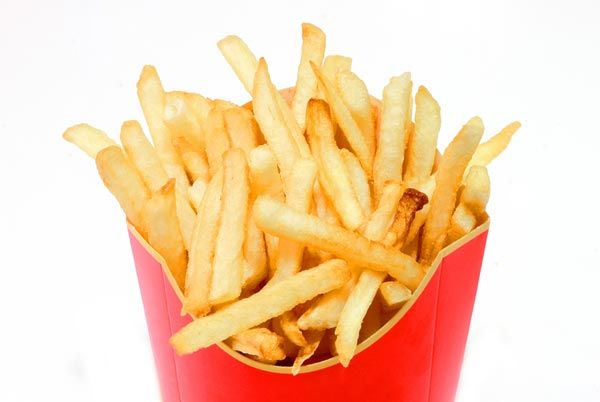Unhappy Meals: Parent Don't Choose Healthier Fast Foods

At fast food restaurants, the some kids are geting half of their daily calorie needs just from lunch, a new study shows.
That's because most parents buy their children unhealthy items, even though healthier options are available, the findings revealed.
"The number of meals and snacks eaten away from home is believed to contribute to excess calories consumed by children, and this number has increased dramatically in the past 30 years," study researcher Kerri N. Boutelle said in a statement. "On a typical day, a remarkable 30 percent of youth report consuming fast food."
The study showed that lunchtime meals from fast-food restaurants accounted for between 36 and 51 percent of a child's daily calorie needs. And 35 percent to 39 percent of those calories came from fat.
In addition, the meals provided more than 50 percent of the recommended total daily sodium intake for most children, and as high as 100 percent of sodium levels recommended for preschoolers. [Tips to Promote Healthy Eating for Kids]
Over a six-week period, researchers from the University of California, San Diego, surveyed 544 families with children who had entered a fast-food chain restaurant located inside of Rady Children's Hospital-San Diego and purchased food at lunchtime.
Parents were asked to specify for whom in their family each food item was purchased, whether the items were shared and other details. There were also asked to show researchers their receipts.
Sign up for the Live Science daily newsletter now
Get the world’s most fascinating discoveries delivered straight to your inbox.
The most popular items purchased for preschoolers were french fries, soda, chicken nuggets, cheeseburgers and hamburgers,according to the findings. Common meal choices for older children were similar, with the addition of hot apple pies for those ages 6 to 11, and chocolate chip cookies for ages 12 to 18.
The researchers noted that although healthier options such as milk, juice, apple slices and fruit parfaits were available, families did not choose them over more typical fast foods.
"Considering the high prevalence of fast-food consumptions by adults as well as kids, it's important to recognize the impact of fast food and its impact on the current obesity epidemic in the U.S.," said Boutelle, who is the behavioral director of the Weight and Wellness Clinic at the UCSD.
"Bottom line, we need to educate families on making health decisions when in a fast-food restaurant," she said.
The findings are published this week in the journal Childhood Obesity.
Pass it on: At fast food restaurants, most parents buy their children unhealthy items that can account for up to 51 percent of a child's daily calorie needs, even though healthier options are available.
Follow Remy Melina on Twitter @remymelina, and follow MyHealthNewsDaily @MyHealth_MHND. Like us on Facebook.












